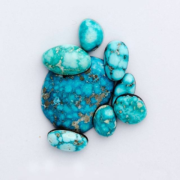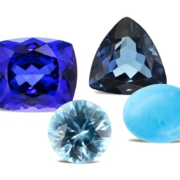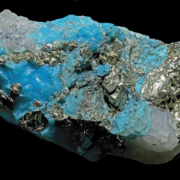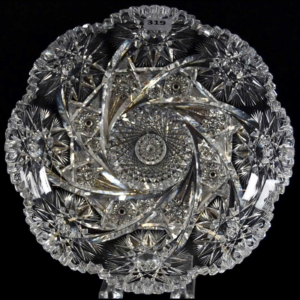Turquoise: The Stone of the Heavens

Introduction Turquoise
Turquoise, with its captivating shades of blue and green, mirrors the colors of the earth and sky. Revered as one of the oldest protection amulets, and historically lauded as a symbol of wealth in ancient cultures, turquoise is a stone that not only mesmerizes with its beauty but also provides significant healing and protective properties. This blog explores the profound symbolism and utility of turquoise, a gem that has adorned kings, shamans, and warriors throughout the ages.
Historical Significance of Turquoise
Turquoise has been esteemed for thousands of years by civilizations around the world. Ancient Egyptians used turquoise in the tombs of Pharaohs around 3000 BCE, and it was worn by Aztecs in ceremonial masks and weapons. Native Americans in the southwestern U.S. mined turquoise, using it in jewelry and as a medium of exchange. The stone was believed to offer protection, especially in battle, making it a cherished gem across diverse cultures.
Physical and Chemical Properties
Turquoise is a phosphate mineral that owes its unique hues to copper and aluminum. It typically ranges from sky blue to green depending on the levels of iron and copper within it. This relatively soft gem has a Mohs hardness of around 5 to 6, which requires it to often be treated or stabilized for use in jewelry. Turquoise is primarily mined in the southwestern United States, Iran, and the Sinai Peninsula in Egypt, making it as diverse geographically as it is in color.

Turquoise’s Healing Properties
Turquoise is renowned for its profound healing energies. It is a stone of communication that helps the spiritual attunement and strengthens the connection between the physical and spiritual worlds. Enhancing intuition and meditation, turquoise is also said to be a powerful healer of the spirit, providing soothing energies and peace of mind. It is believed to promote self-realization and assist creative problem solving, making it a valuable stone for those in need of solutions in life.
Turquoise in Modern Day Practices
Today, turquoise remains a popular stone in jewelry and decorative objects. Its significance continues in modern crystal healing; it’s used to cleanse the energy centers (chakras) and as a personal talisman against negativity. Turquoise jewelry is often given as a gift of friendship, as it is reputed to be responsible for faithfulness and reliable relationships.

How to Use and Care for Your Turquoise
To care for turquoise, avoid exposure to high heat and chemicals that can damage the delicate surface. Cleaning should be done gently with a soft cloth and mild soap; turquoise should not be submerged in water. Recharging turquoise can be done by placing it on a crystal cluster or in moonlight, which helps to refresh its protective and communicative properties.
Personal Stories
Many who wear turquoise speak of its protective and calming effects. For instance, a teacher from Arizona wears turquoise earrings to maintain a calm and stable environment in her classroom. Another individual, a writer, keeps a piece of turquoise on his desk to help flow ideas and ward off writer’s block.

Comparisons with Other Healing Crystals
While similar to stones like lapis lazuli and aquamarine in color, turquoise is unique in its combination of protective and healing properties. It bridges the gap between stones like malachite, which are known for physical healing properties, and blue lace agate, which supports communication.
Conclusion
Turquoise is more than just an aesthetic gem; it’s a bridge between the past and present, offering a sense of continuity and protection. It nurtures, heals, and protects, reminding us of the sky and earth, grounding us and elevating our spirits simultaneously.
“Step into the serene world of turquoise—explore our exquisite collection of turquoise jewelry and embrace its protective and healing properties. Click here to connect with the ancient energies of the earth and sky!”






Leave a Reply
Want to join the discussion?Feel free to contribute!